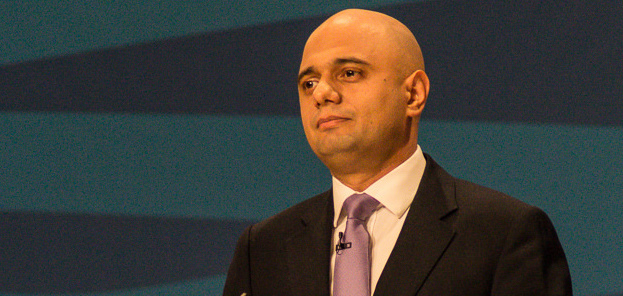
Social care and special needs funding were among the biggest winners in the chancellor’s spending statement.
Sajid Javid promised certainty for a new era in his one-year spending statement. But the chancellor faced criticism he had done little to provide clarity on the future of local government funding.
The chancellor revealed plans for the fastest spending increases in 15 years but warned he would not be writing blank cheques for public spending.
He used his one-year spending review to acknowledge the post-Brexit era would be challenging.
There will be a further £2bn next year to fund infrastructure and other government costs generated by leaving the EU.
He said: “We won’t be able to afford everything. We’ll still need to make difficult choices about our national spending.”
Much of the statement had already been trailed in the national media but there were significant increases in public sector budgets.
Total capital spending will go up by £1.7bn but there was no commitment to increase council budgets that have been hit by 40% of cuts in the austerity era.
There was a headline-grabbing pledge of £3.6bn for the New Towns fund create extra housing in developments such as Ebbsfleet.
Money was largely devoted to issues that have damaged the government because of the impact on vulnerable people.
The last election was partly lost for the Conservatives over care home fees. So there was £1.5bn for social care – “a solid foundation to protect the system next year”.
The money divides between £1bn delivered through a new grant and £500m through a 2% precept on adult social care precept the government will consult on later this year.
Homelessness and rough sleeping work by councils got an extra £54m bringing the total to £422m.
Javid said: “On any given night, too many people are sleeping rough on our streets. The human cost of that is too high.”
Education and skills are at the heart of the economy, he added.
Javid said: “We are delivering on our pledge to increase school spending by £7.1bn by 2022-23.”
The government has come in for heavy criticism for special education spending and there is £700m more to support children and young people with special educational needs, an 11% increase compared to last year.
Birmingham City Council had been battling to find extra cash to host the Commonwealth Games next year, but the chancellor announced their fears were over.
He told MPs: “In 2022, we’ll host the Commonwealth Games in Birmingham. Today I can confirm the government’s total commitment to this celebration of sport will be over half a billion pounds.”
The Treasury said: “This Spending Round provides more money to support vital public services while being delivered within the government’s existing fiscal rules. The government will review the fiscal framework alongside an updated economic and fiscal forecast and set out a new economic plan at the Budget.”
Councils welcomed the cash that will ease budget pressures in the short-term.
Cllr James Jamieson, chairman of the Local Government Association, said: “This will help councils as they strive to ensure older and disabled people can live the lives they want to lead, support our most vulnerable young people and allow them to continue to improve local areas.
“Confirmation that key grants will also continue next year provides much-needed stability for councils.”
Some struck a sceptical note on the spending review. Dr Jonathan Carr-West, chief executive of the Local Government Information Unit (LGIU), said che chancellor should “not expect too many plaudits,” and the spending statement would not undo ten years of cuts.
“In terms of clarity about how local government is to be funded sustainably in the future, we are no clearer today than we were yesterday. We still don’t know the outcome of the Fair Funding Review. We still don’t know how business rate retention will work.
“This spending round provides funds for services. And while that is better than not funding services it is not as good as funding local government.”
Dr Carr-West added that “effective services” were best delivered through a multiagency approach focused on local needs.
“You can only achieve that by funding local government and letting democratically elected local leaders decide on local priorities not by throwing isolated pots of money at individual service areas,” he said.
Concerns about the sustainability of local government funding were echoed by Jon Peebles, CIPFA’s head of policy and technical.
He said the statement represented a welcome “first step” but also a “substantial increase” in government borrowing while doing “little to put funding for public services on a sustainable footing for the long term.”
He added that £15bn previously earmarked as a three-year Brexit contingency fund appeared to have been spent in a single spending round ahead of a general election. It also comes without up-to-date forecasts and commentary from the Office of Budget Responsibility.
“As the possibility of a no-deal Brexit persists, the UK is approaching a potential economic cliff edge and the public sector will be taking on higher debt without knowing the real costs of the UK’s departure from the EU,” Peebles said.
The District Councils Network welcomed the extra money, which its chair, Cllr John Fuller, described as the “most generous settlement for councils in a decade.”
However, he too raised the issue of long-term funding. “Despite today’s announcement,” he said, “councils still face significant challenges in continuing to provide the local leadership our residents deserve.”










